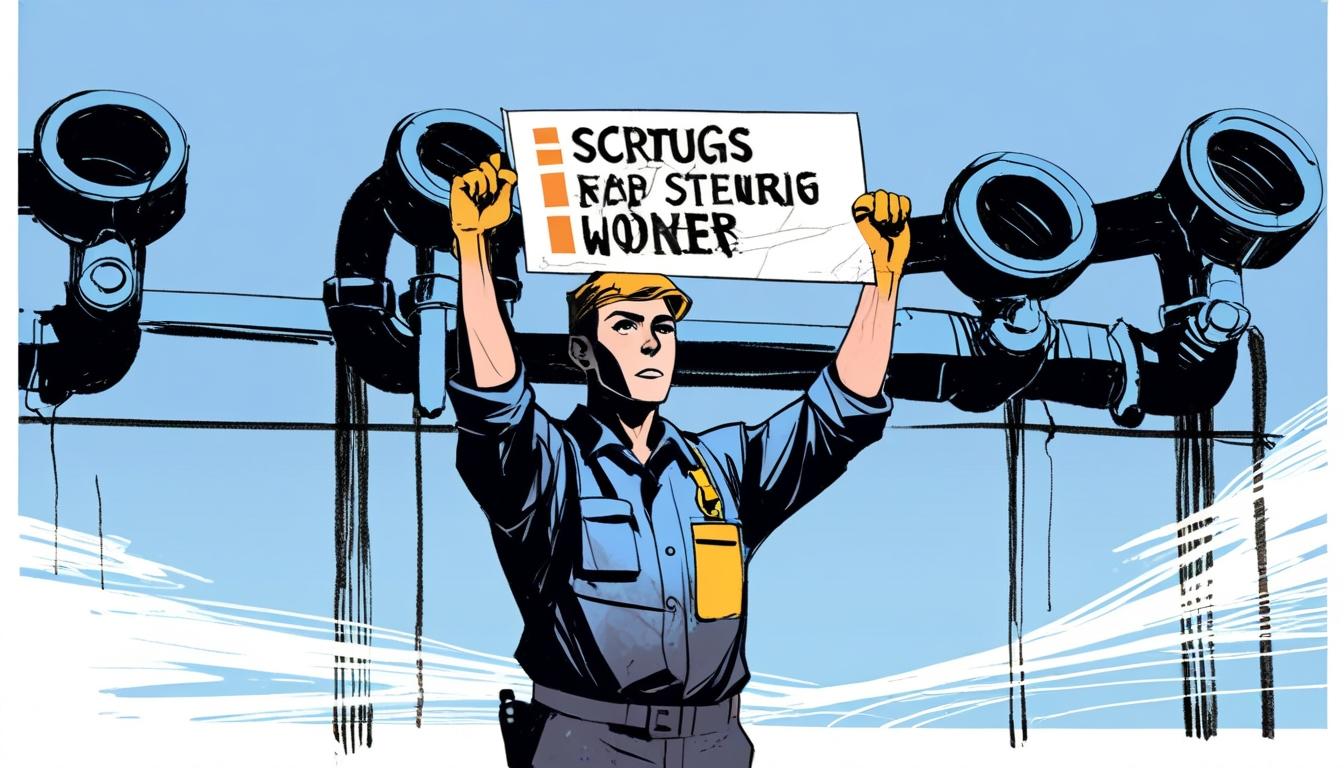Scottish Water, the publicly-owned utility responsible for water supply and wastewater services across Scotland, is currently embroiled in a significant dispute with its staff regarding pay and management practices. This conflict has the potential to affect essential services, including water supply maintenance, wastewater treatment, and emergency responses to leaks or flooding. With over 2.5 million households and 150,000 businesses relying on its services, the implications of this dispute are far-reaching.
The heart of the disagreement lies in concerns raised by employees and their unions—GMB, Unite, and Unison—over compensation that has reportedly failed to keep pace with inflation. Many workers have voiced frustrations over real-term pay reductions and are advocating for fairer wages through industrial actions, including strikes and overtime bans. The ongoing situation raises pressing questions about the adequacy of pay structures in a time of rising living costs and economic challenges.
A major contention point is the attitude displayed by management, particularly Chief Executive Alex Plant, who has been criticized for his level of involvement in negotiations. Reports indicate that Plant's total remuneration package is around £483,000, including significant bonuses, making him one of Scotland’s highest-paid public sector executives. This has led to accusations of hypocrisy from unions, who argue that while management compensation is soaring, frontline workers struggle with subpar pay offers. In fact, a new pay proposal, while touted by Scottish Water as "well above inflation," was rejected by staff, who viewed a suggested increase of 3.4% or £1,400 as insufficient given current economic challenges.
The unions have reportedly requested a £3,000 increase for employees in lower grades, asserting this figure still falls short of a living wage amidst today's financial pressures. The organisation, however, defends its stance by emphasising that such increases are unsustainable, given the financial need to invest in essential services and the affordability for bill payers.
Critics of the current management culture have highlighted how the lack of genuine negotiation has exacerbated tensions, with unions claiming that Scottish Water has bypassed standard collective bargaining processes in favour of unilateral decisions. The emerging discontent has culminated in overwhelming support for strike action, with reports indicating that up to 92% of union members at Scottish Water back the move. As the unions contend, without a commitment from management to engage sincerely in negotiations, the path forward remains uncertain.
The ramifications of this dispute reach beyond immediate pay concerns. Prolonged industrial action, if it occurs, could hinder Scottish Water's ability to deliver vital services, further complicating an already strained public trust. Many in the industry argue that resolution could pave the way for improved employee morale and operational efficiency, thereby reinforcing the organisation's commitment to its workforce.
The situation encapsulates broader issues surrounding public sector compensation, highlighting the delicate balance between ensuring fair wages for workers and maintaining fiscal responsibility. Transparency and accountability in executive remuneration have come into sharp focus, with rising bonuses for executives at odds with the struggles facing frontline workers during a cost-of-living crisis.
In response to these challenges, Scottish Water's leadership has pledged to protect essential services during any industrial action. Still, critics maintain that the company's approach lacks accountability and genuine adherence to the principles of fair negotiation. Ultimately, the ongoing dialogue—or lack thereof—between management and employees will play a pivotal role in determining not only the immediate fate of Scottish Water’s workforce but also the long-term sustainability of vital public services across Scotland.
Reference Map
- Paragraph 1: (1)
- Paragraph 2: (1)
- Paragraph 3: (1), (2)
- Paragraph 4: (1), (3)
- Paragraph 5: (1), (4), (6)
- Paragraph 6: (1), (5)
- Paragraph 7: (1), (2), (7)
- Paragraph 8: (1), (4)
- Paragraph 9: (1), (4), (5)
Source: Noah Wire Services
